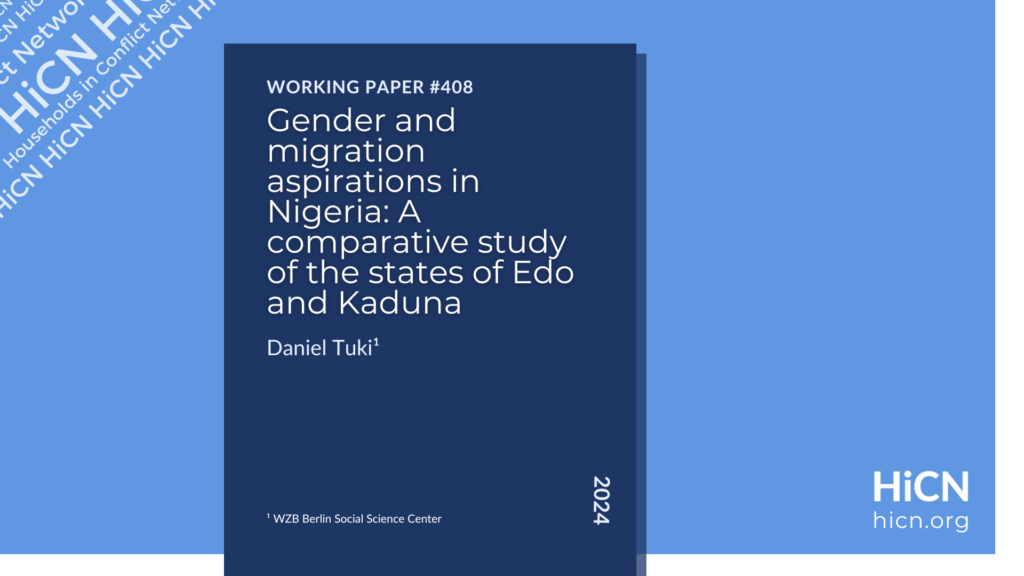
This study examined the effect of gender on migration aspirations in the states of Kaduna and Edo, which are in Nigeria’s Northern and Southern Regions respectively. The regression results showed that, in Kaduna, the effect of gender on migration aspirations was moderated by marital status: being female and married lowered migration aspirations. When I shifted the focus of the analysis to the concrete plans made to emigrate to another country, I found that being female lowered the probability of making international emigration plans. The effect was direct. These results may be explained by the patriarchal nature of society in Kaduna and the salience of gender norms: women are expected to be homemakers, and this attenuates their migration aspirations. In Edo, females did not differ from males in terms of migration aspirations; however, being female in a wealthy household reduced the probability of making international emigration plans. This suggests that households allocate more resources toward men’s emigration plans than those of women. Being female and married increased the probability of making international emigration plans. The emigration plans of married women might be associational—i.e., tied to their husbands’ emigration plans or driven by the desire to reunite with their husbands who have already emigrated.